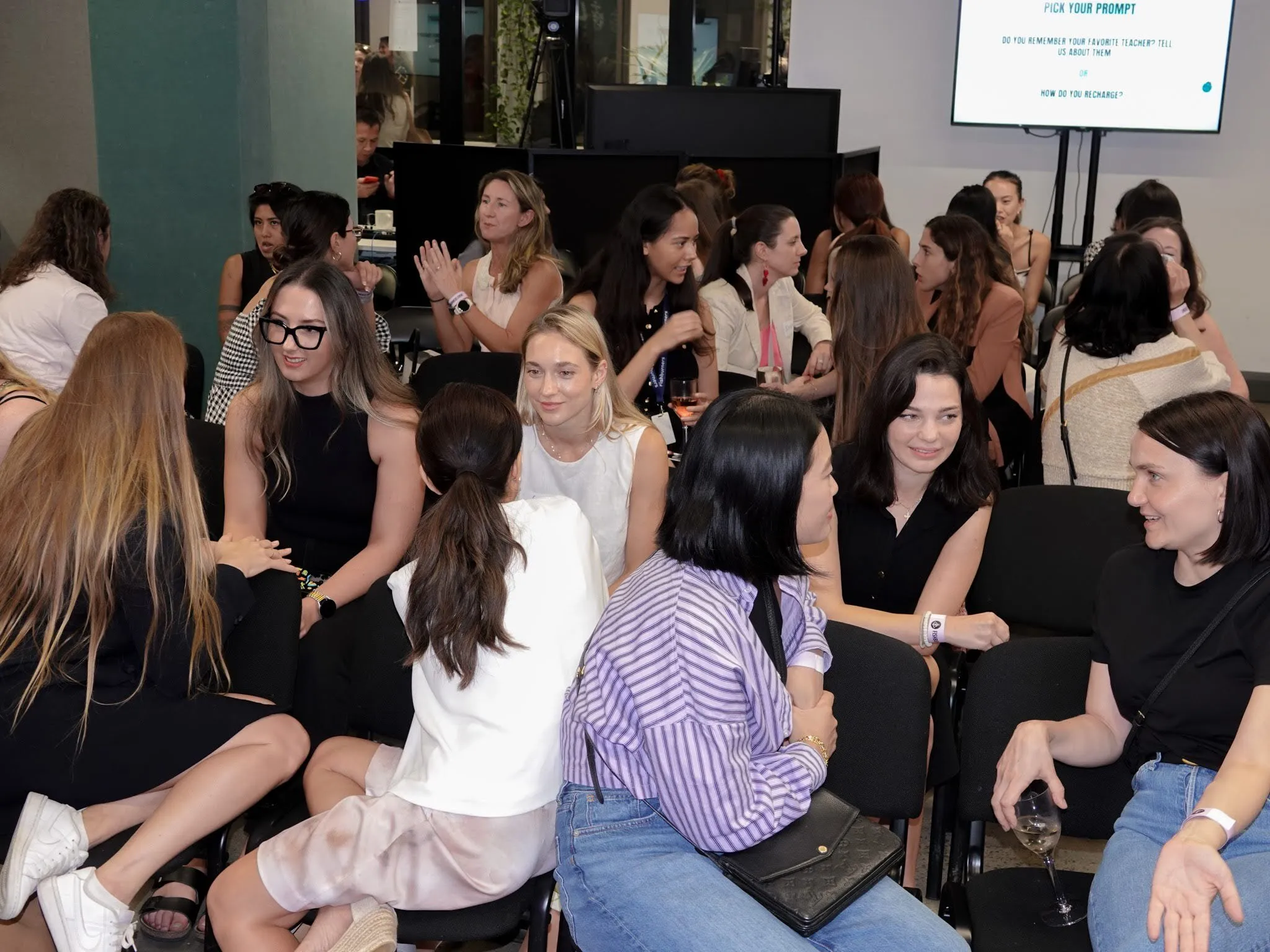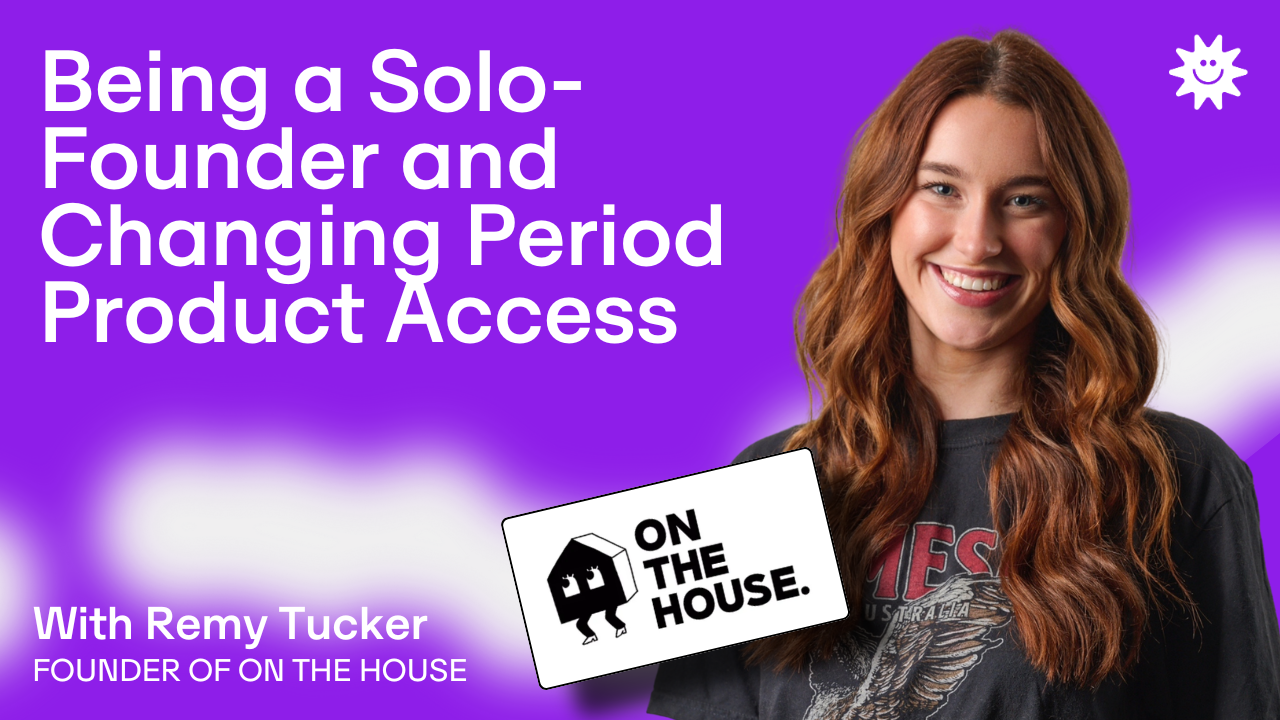When I first started as a Chief of Staff at Startmate, I realised pretty quickly that I would really benefit from having an external mentor who could help me get to the level I wanted to be at.
Nowadays we have a process internally to connect everyone in the team with a mentor, but back then I didn’t have a playbook. But, with a little effort and planning, I was able to line up a mentor who I can hand on heart say has played a really fundamental role in my growth over the last three years. Having a great mentor who isn’t ‘in the business’ is honestly such a career hack:
- They can push you and be honest with you in a way that people in your team might not be
- They can hold you accountable to personal goals you’re setting
- They’re the right ‘distance’ from the problems you’re facing, and can see how your own bias or opinions are getting in the way of good problem solving.
The hardest part, though, is getting that relationship set up in the first place. Here’s what I did.
1. Identify a list of dream mentors
This is going to look different based on your needs and goals. Consider:
- Where do you most need support right now?
- What kind of qualities would work well with your weaknesses?
- How do you most want to grow? What kind of experience would help you get there?
For me, I knew I needed a few things:
- An exceptional problem solver with a generalist skill set and strong people lens
- Someone who wouldn’t pull punches/I couldn’t pull the wool over their eyes or talk my way out of things
- Someone I really admired/respected and felt had a level of values alignment, and who I could meet with in person
Pretty early on I met someone who ticked all these boxes. I was lucky that the first person I asked said yes; I’d recommend pulling together a list of a few names for your first go. Ask other leaders in your business if there are people they know, search role titles on linkedin, try and do some crowd-sourcing.
2. Frame up your ask
The ask does depend slightly on your existing relationship with this person.
If you’ve never met before, try and get a warm intro, and start with a smaller request.
- Ideally this is a coffee catch-up where you can drill them with career related questions and suss each other out
- Make it as easy for them as possible: frame up what you want to ask them about and why them
If you have some sort of pre-existing relationship with them (or have now post coffee-catch up), it’s time to pop the question: will you be my mentor?
Here’s how I structured my ask:
- Ask the question right up the top: you’re wondering if they would be happy to mentor you
- Why do you want them to be your mentor?
- This shouldn't be too hard because you’ve already done the work here
- Why that person specifically? How does their experience/who they are align with your growth goals?
- Why should they want to mentor you?
- Now’s your chance to flip the text a little. What will they get out of it?
- I wrote about how much I loved feedback, how I was a really fast learner, and that I thought it would be really rewarding to mentor me because of that
- I also said we could have our mentor catch-ups during a run because I knew this person also loved running
- Define the parameters
- I think a 1 x monthly meetup for 6 months is a reasonable first commitment; then you can both re-evaluate
- What will the process be? Will you chat between meetings? This can be a conversation so that it’s something that works for both of you, but it’s really helpful to have a rough outline of how you see it working.
3. Overdeliver and show your respect for their time and energy
They said yes!!! Wow. (If not, repeat step 2 with other mentors on your dream mentor list). Now is your chance to prove to them straight away that deciding to mentor you was an excellent decision.
For each of my catch-ups, I would send over a detailed write-up with the specific challenges I was facing, how I was thinking about them, and where I wanted help. My mentor would read through this and pull out additional things they’d noticed or wanted to talk through as well as my specific areas. We’d go for a run, talk through the write-up, and afterwards I would write down every single detail so that I could refer back to it and note the key actions.
For the next catch-up, I’d make sure I provided any relevant updates on what we’d discussed last time so it was clear I was making changes beyond the actual discussion.
I found going through this work was enormously valuable. It meant that I was framing up the most valuable way to spend our time, it meant that I got the most possible out of the process, and it meant that they could see how much it was unlocking me. Hope that helps.






.jpg)

